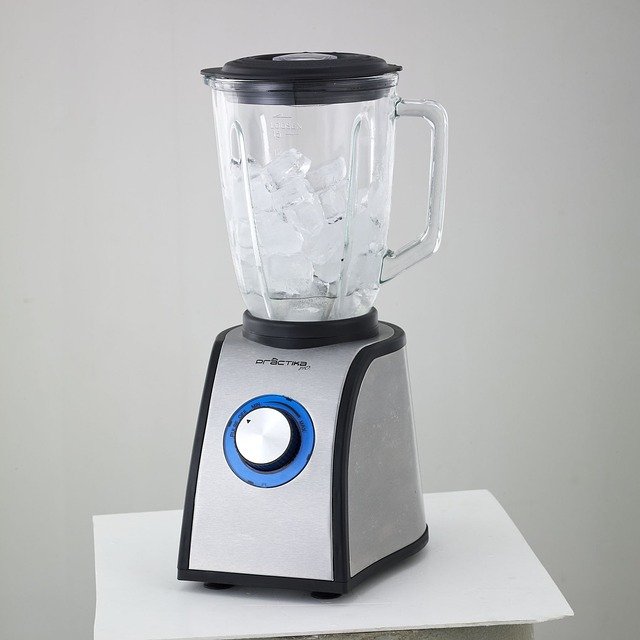Sustainable Kitchen Partners and Practices
A sustainable kitchen involves nurturing partnerships with the appropriate stakeholders, ingraining sustainable practices into the core of the culinary operation, and eco-friendly appliances and detritus. It’s a concerted effort to reduce the foodservice industry’s environmental footprint through strategic collaborations and informed decision-making.
Sustainable kitchen partners encompass a range of entities—from suppliers of green technology and organic food producers to waste management companies and energy auditors. These collaborators are instrumental in providing the products, services, and expertise necessary to operationalize a sustainability vision within the culinary space. They play a pivotal role in assisting kitchens reduce waste, conserve resources, and source responsibly, ultimately contributing to a healthier planet. Sustainable kitchen partners that you can collaborate with to establish a sustainable kitchen are noted below:

- Eco-Friendly Equipment Manufacturers
- Green Technology Innovators
- Organic Food Suppliers
- Eco-Friendly Cleaning Product Suppliers
- Innovative Sustainable Packaging Companies
- Sustainability Consultants
- Environmental Organizations
- Energy Auditing Firms
- Recycled Kitchenware Manufacturers
Sustainable practices in the kitchen are a comprehensive set of actions aimed at minimizing the environmental impact of food preparation and service. This involves optimizing energy and water use, reducing waste through strategic planning and recycling, procuring ingredients that are produced in an environmentally responsible manner, and ensuring that waste is managed in a way that diminishes its impact on the environment.
These practices are about meeting regulations and are prompted by a commitment to stewardship of the Earth and the well-being of future generations. Adopting these practices can lead to substantial cost reductions in energy, water, and cleaning supplies. They can also enhance a restaurant’s allure to an expanding demographic of environmentally conscious consumers, potentially increasing patronage and profits. Sustainable kitchen practices that you can implement to produce a sustainable kitchen are enumerated below:
- Collaborating with Waste Management Services
- Supporting Local Farmer Markets
- Switching to Renewable Energy Providers
- Utilizing Water-Efficient Appliances
- Sustainable Food Storage Solutions
- Achieving Green Building Certification
- Sustainable Kitchen Partners
“Sustainable Kitchen Partners “represents a pioneering initiative aiming at transforming the culinary landscape through the promotion of environmentally responsible practices. This collaborative endeavor seeks to unify chefs, restaurateurs, food suppliers, and consumers in a shared mission to reduce waste, source ingredients sustainably, and cultivate a culture of responsibility within the kitchen and beyond. By prioritizing sustainability, this partnership endeavors to enhance the quality and ethics of food preparation and to contribute significantly to the global effort against climate change.
Eco-Friendly Equipment Manufacturers
A sustainable kitchen predominantly focuses on increasing the efficacy of all the commercial kitchen equipment they use to store, process, and prepare, which helps commercial kitchen operators decrease their carbon footprint while saving money, time, labor, and resources. American Energy Department’s Energy STAR® is the foremost qualification of water and energy efficiency for appliances, and you can start your green transformation by choosing commercial kitchen equipment with Energy Star certification. Here, we provide three samples of eco-friendly devices that are designed to operate on less energy or water with 3 case studies:
Commercial Fryers: Among the most essential devices for all types of restaurants and caterers, commercial fryers utilize a significant amount of gas or electricity since they need to be working most of the day. As calculated in Arby’s Restaurant Group, Inc.’s case study, an Energy Star-certified commercial fryer can save up to 400 USD per year as compared to a non-Energy-Star certified unit, which yields up to thousands of dollars per year when you consider the food chain having hundreds of fryers. Atosa, Ultrafryer, Vulcan, Anets, Resfab, Henny Penny, and Royal Range offer commercial fryers with top-notch quality, which present low energy consumption.

Commercial Dishwashers: These are among the most expensive commercial kitchen equipment you can purchase for a commercial kitchen, and they can cost up to a hundred thousand dollars, depending on your dishwashing volume. Additionally, they are the primary consumer of water in commercial kitchens, using thousands of liters of water annually. However, as the Federal Energy Management Program explains, an Energy Star-qualified commercial dishwashing machine can decrease water consumption by 25% and lower your costs by around 7,000 USD per year. Lamber, CMA, Champion, Eurodib USA, American Dish, Fagor, Stero, Centerline by Hobart, Jackson WWS, and Meiko are ideal options to lower water and energy expenditures while rinsing the dishes.
Eco-Friendly Commercial Ovens
Commercial Ovens: These units are the most common form of commercial apparatus in restaurant or hotel facilities and operate on gas or electricity. Energy Star estimates that a gas combination oven with Energy Star qualification can save up to $3,000 annually in your energy bill with its high efficiency. Unox Cheftop Ovens, Alto-Shaam, Rational, Atosa, Belshaw, Cadco, Lang, Montague Company, Royal Range of California, Southbend, Rational, Baxter, Revent, and Convotherm ovens are added to your inventory since they offer high-efficiency commercial combi ovens with Energy Star certification.
Green Technology Innovators
Environmental awareness enhances the development of new technologies to guarantee a sustainable kitchen at every phase. Green technology stands front, notably in refrigeration and food management branches:
Innovation in Refrigeration: Utilizing the high-efficiency insulation panels manufactured from rigid and water-resistant foam to retain the chill better and lower the energy consumption, commercial refrigeration manufacturers such as Kolpak or Arctic Industries install safety alarms to allow you to ensure consistent temperature levels. The innovative walk-in freezer and cooler monitoring systems enable you to follow the temperature levels from everywhere through online systems.
Innovation in Food Management: You can make use of the Tenzo, which is an AI-powered tool to collect data in your operations and make predictions about the projected demand for your products, which helps you determine how much food you need to prepare, thereby decreasing your food waste.
Organic Food Suppliers
Organic food refers to naturally grown products without synthetic substances in soil that are free from prohibited items in the last three years as required by the US Department of Agriculture. You can enhance your Green Transformation by using organic food products that are distributed in abundance by suppliers, such as Eden Foods and SunOrganic Farm. These companies contract with local producers and contribute to the environment by supplying natural foods.
Eco-Friendly Cleaning Product Suppliers
Eco-friendly cleaning products are manufactured from environmentally responsible components such as plants, non-toxic and non-petroleum products, and are free from caustic soda or phosphate. Since there are various cleansing and sanitation requirements in commercial kitchens, All-Green Janitorial Products, AlphaChemical, and HDChem are the companies that focus on eco-friendly cleaning products.
Innovative Sustainable Packaging Companies
Packaging can be cited as one of the most detrimental aspects of the foodservice industry since it uses an enormous quantity of packaging products from storage to delivery orders. Therefore, transitioning from classic packaging to green solutions will decrease your waste while decreasing your carbon footprint starting from the first phases of packaging production.
Thanks to the efforts of the companies to offer innovative solutions for the foodservice industry, you have many options for your business to continue your packaging operations with entirely eco-friendly solutions. For instance, Uline offers biodegradable bags, sugarcane take-out containers, and compostable paper heated cups for restaurants. Additionally, Amcor provides flexible packaging containers made from recyclable polyethylene terephthalate (PET) and high-density polyethylene (HDPE) for meat, vegetables, cheese, or almonds. EcoPliant has an extensive collection of sustainable kitchen equipment collection, which incorporates food containers, sacks, cups, plates, and all other necessary items for a commercial foodservice business. All these products are manufactured from 100% recyclable components.
Sustainability Consultants
Sustainability requires expertise and experience on the standards, applications, and regulations about low carbon activities, energy efficiency, green technologies, and eco-friendly innovations. You can facilitate your green transformation by contracting with sustainability consultants such as Beyond Green, Sustainable Culinary Solutions, and Sustainable Kitchen Consultants.
Environmental Organizations
Organizations enable individual enterprises or people to unite and create an influential force that guides them to reach higher achievements, promote their views, and defend their rights and interests. There are environmental organizations in the foodservice industry that bring establishments together for green transformation:
Green Restaurant Association (GRA): Launched in 1990 as an international non-profit organization to introduce and promote green dining in the foodservice industry, GRA is not present in 47 states and Canada with its turnkey certification system that defines procedures and inspects the compliance of restaurants with the sustainability standards in Energy, Water, Waste, Food, Chemicals, Disposables, and Building.
The National Restaurant Association (The NRA): NRA is the largest foodservice trade association in the world and has a special program titled “Conserve Program” to enhance sustainability practices in the industry. Cooperating with Energy Star, Turner Foundation, Kendal College, and the University of Washington to provide detailed education for the establishments.
Energy Auditing Firms
Enery use is among the highest expenses for foodservice establishments, and efficacy is among the most significant issues to be dealt with when working to create a sustainable kitchen. Energy auditing firms provide experts to inspect your establishment, evaluate the existing systems, and present plans and solutions to maximize energy efficiency. Priority Energy Solutions and TECO Tampa Electric are some of the companies experienced in this field.
Recycled Kitchenware Manufacturers
Recycling helps us minimize our waste by refining the refuse and converting it into reusable materials or energy. You can also find cookware and dinnerware which are made from recycled metal, paper, and glass from these brands:
Farberware: Having its origins in the first decade of the 20th Century when its founder started to create tin and copper cookware, Farberware now produces non-stick cookware under the Eco Advantage series made from 100% recycled aluminum.
Green Paper Products: Founded in Ohio in 2009, the company now produces sustainable products for a safe and pure future for the next generations. The company presents cups, closures, receptacles, bottles, purses, and flatware packages from recycled plastic and paper.
Combekk: In 2015, the company introduced the first 100%
recycled Dutch Oven, which employs certified recycled materials in its production. The company’s products are also exempt from pollutants such as lead, cadmium, or PBA.
Sustainable Kitchen Practices
“Sustainable Kitchen Practices” concentrates on the incorporation of eco-friendly methods and materials into the culinary world to minimize environmental impact. This approach incorporates a range of strategies, from reducing food waste and conserving water to procuring local, organic ingredients and utilizing energy-efficient appliances. By implementing these practices, kitchens can play a crucial role in promoting sustainability, enhancing food security, and supporting the health of our planet for future generations.
Collaborating with Waste Management Services
The foodservice industry is responsible for the greatest quantity of food waste in the world, comprising 2 billion in profit loss and 40% of the produced commodities annually, according to EPA. Therefore, restaurants and other foodservice businesses must conduct a two-way waste management system, which includes not only managing the food waste but also employing innovative methods of decreasing food waste and utilizing the excess food.
Waste Collection: Restaurant receptacles and refuse containers need to be removed daily, and waste management services can do this securely with their trained staff and specialized equipment. Companies such as American Disposal, Republic Services, and Waste Management can collect your waste daily.
Commercial Recycling: These companies also offer commercial recycling services and process waste to separate paper, glass, metal, and other recyclable materials before sending them to receptacles.
Garbage Disposal Equipment
Innovative Solutions for Food Waste: Services like Winnow monitor and analyze your dishes for food waste, provide detailed data on what products consumers squander, and offer solutions on how to reduce food waste. Salvajor, Somat, RedGoat, InSinkErator, and MasterDispoers have effective commercial waste disposal equipment for foodservice businesses.
Supporting Local Farmer Markets
Local producers are the closest resources for your sustainable kitchen, and they can keep you supplied with fresh fruits, vegetables, and cereals. Furthermore, your purchases from these local producers support them in expanding their businesses and prospering in the local economy, which will also bring you more consumers. Additionally, your local producers’ purchasing minimizes fuel consumption since the transportation requirement is much more limited.

Switching to Renewable Energy Providers
Sustainability is closely related to renewable energy sources; therefore, sustainable kitchens must be fueled with solar or wind power. Solar energy is the number one choice of restaurant proprietors since it can readily be installed on their rooftops as well as the terraces and parking lots. Even though the available areas in which solar panels can be implemented are limited, and it is almost impossible to fit all the panels that can fully power your establishment, solar panels can easily provide 30% of your electricity consumption, saving you up to $8,000 annually as calculated in detail by Fesmag.
Additionally, you can power your commercial refrigerators, freezers, and merchandisers, which store your temperature-sensitive foods even during electric cuts, which are common issues in case of cyclones or other power disruptions.
Utilizing Water-Efficient Appliances
Water consumption in commercial contexts is a large expense and a significant hazard when not managed efficiently since pure water resources are progressively decreasing. Therefore, we can present you three technologies that are highly efficient in decreasing water use while maintaining your seamless workflow:
Pre-Rinse Spray Valve: Pre-rinse faucets are used to remove the soil and food detritus on the dinnerware and cookware before depositing them into the dishwasher, and it causes a large quantity of water consumption. So, replacing it with an innovative pre-rinse spray valve that utilizes the spray force with less water (up to 20%) can save you 12,000 gallons of water as well as a $1,172 water bill in its lifespan, as calculated by California Energywise.
Grey Water Filtration Systems: Companies like Hydraloop and Ecovie offer grey water filtering systems that process the water from laundry, basins, and rooftops for a second-time use for garden irrigation or toilet draining, thereby saving up to 45% of clean potable water.
Commercial Dishwashers: Dishwashing is the primary water consumer in a commercial kitchen, and therefore, by equipping your facility with the new-technology commercial dishwashers with Energy Star qualification, you can save up to 50% of water annually, according to the Arizona Department of Water Resources.
Using Sustainable Food Storage Solutions
Restaurants, cafes, and other commercial foodservice businesses need food storage solutions for delivery orders, to store ingredients, or to deliver foods and meals. Preferring Compostable, recyclable, or biodegradable food containers made from bamboo, sugarcane, and maize starch helps you decrease your carbon footprint and contribute to your sustainable kitchen efforts.
Achieving Green Building Certification
While creating a sustainable kitchen in your establishment is crucial, you must also guarantee sustainable building to create an eco-friendly business. Green building certification systems determine the standards for a green building and inspect whether the buildings meet the specific criteria on environmental responsibility, energy use, and human health. Furthermore, these systems provide auditing, guiding, and assisting services to transform your building into a sustainable facility. Some ecological building certification systems are mentioned below:
According to Yale Sustainability, the most common type of green building certification is LEED (Leadership in Energy and Environmental Design) certification, which evaluates the many building features, including energy, air quality, lighting, noise pollution, transportation, materials, and many others. Another green building certification is the Living Building Challenge, which focuses on the energy, water, and refuse factors and how these are produced and reused.
How to Measure The Impact of Sustainability in The Kitchen
Sustainability in foodservice is an extensive plan that must be applied constantly to reach your objectives to decrease your carbon footprint, mitigate the detrimental effects of your operations, and contribute to the world’s future. However, creating a detailed plan and applying the necessary steps one by one to reach a sustainable kitchen is not complete with regular measurements and evaluations that provide insight into your applications’ performance, efficacy, and efficiency. It would be ideal if you had the correct key performance indicators (KPI) to evaluate your advancement appropriately.
What are The KPIs for Measuring The Impact of Sustainability in The Commercial Kitchens?
The KPIs for evaluating the impact of sustainability in commercial kitchens are enumerated below:
- Energy consumption
- Water usage
- Waste generation
- Recycling rates
- Carbon footprint
- Local sourcing proximity
- Supply chain sustainability
- Cost savings from sustainable practices
- Employee engagement levels
- Customer response
- Compliance with environmental standards
- Noise contamination.
Energy Consumption
Energy consumption is the first KPI to be monitored closely, and you can use digital tools to check how much energy is used in what processes and evaluate the potential methods of further enhancing energy efficiency. Look for the average kWh (kilowatt-hour) utilization for your commercial kitchen and the potential percentage reduction attained by implementing sustainable practices.
Water Usage
Water use in cleansing, food preparation, chilling, heating, ice making, and other essential operations are measured to evaluate your precautions’ efficacy.
Waste Generation
Following the waste quantity, classifying the waste categories enables you to improve your waste management and food purchasing and preparation operations.
Recycling Rates
Monitoring the recycling processes and calculating the amount of refuse that is recycled, composted, or sent to the disposal is essential in achieving a sustainable kitchen.
Carbon Footprint
Sustainability in the kitchen seeks to minimize the carbon footprint in the operations of foodservice facilities. Therefore, all businesses monitor their carbon footprint output regularly to evaluate the efficacy of their efforts.
Local Sourcing Proximity
The use of fossil fuels during transportation is a significant source of carbon emissions, and therefore, sustainability in the kitchen requires the assessment and evaluation of the distances from the source to the kitchen and working to minimize it through local procurement.
Supply Chain Sustainability
While emphasizing on enhancing your eco-friendly and sustainable operations, you also need to assess the environmental practices of your suppliers. Some certifications or indexes evaluate the sustainability of supply chains, which can give a measurable sense of improvements or scores.
Cost Savings from Sustainable Practices
Sustainability in the kitchen contributes to your profitability with less expenses through less expenses on water and energy bills, transportation, and food waste and more earnings through a rising number of customers. This is also evaluated routinely to ensure the utmost benefits from savings and reimbursements.
Employee Engagement Levels
Your staff is vital to your sustainable kitchen, and their engagement levels are measured to ensure efficiency. This might be reflected in improved employee retention rates or satisfaction survey results, which are sometimes disclosed in corporate social responsibility reports. Engaged employees are generally 27% more likely to report “excellent” performance in their company, according to Gallup.
Customer Response
Customers’ perceptions and views about your sustainability efforts are also crucial and must be measured to evaluate efficiency and awareness. The National Restaurant Association has reported that over 70% of adults prefer to consume at environmentally responsible restaurants.
Compliance with Environmental Standards
Sustainable kitchen applications are also rigorously tied to regulations and standards, and your facilities and staff’s compliance with these regulations is monitored for a constant and consistently sustainable kitchen. Compliance rates can be found in government or third-party audit reports.
Noise pollution
Going Green also incorporates lowering noise pollution for the welfare of your personnel and consumers. So, the sound levels are measured to assess their compliance with the regulations.





